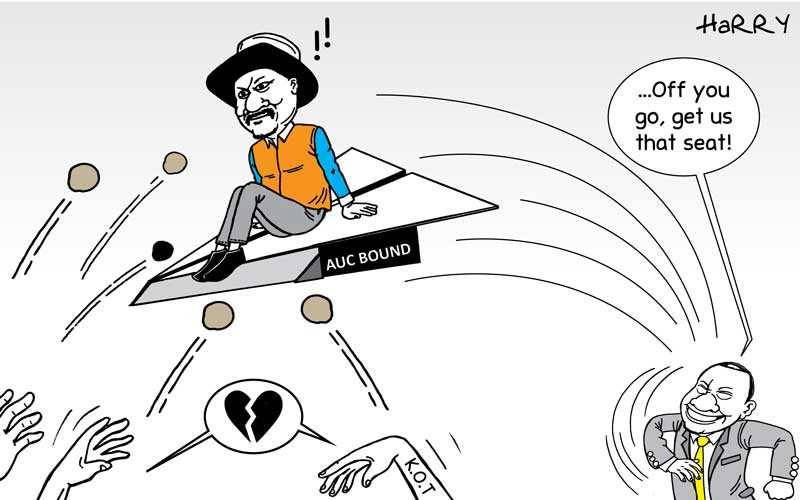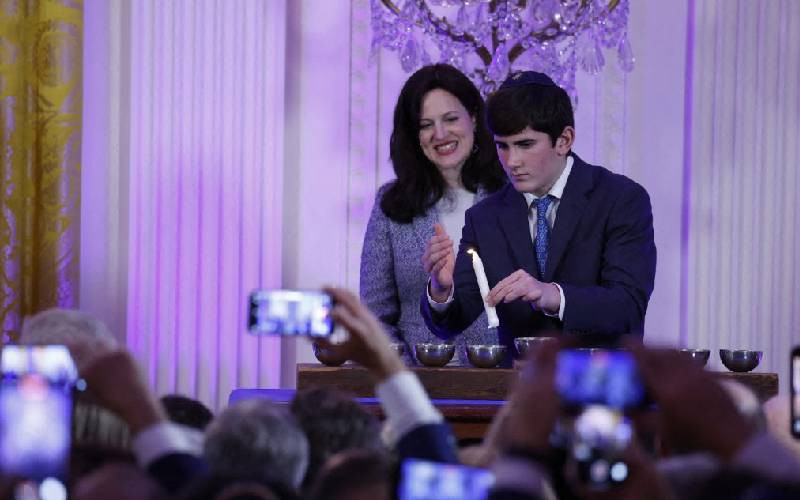The 14th United Nations Conference on Trade and Development (UNCTAD) meeting in Nairobi this week offers a unique opportunity to governments, the private sector and development partners to put ideas into action ensure inclusive and equitable environment for global trade and development.
While Europe is on the verge of breaking up, Africa is reaping the benefits of integrating. We must therefore take advantage of this to enhance investments.
The collapse of virtual borders is one of the most remarkable things to have happened in our lifetime. Time and distance are almost peripheral considerations as far as business is concerned as services can be delivered across the world in the blink of an eye.
So what must Africa do to facilitate investment? There are various challenges that governments must address to achieve this goal, including gender-based discrimination, poverty and harmful practices such as early marriages which are both a cause and a consequence of disparities in our society today. These undermine the ability of women and girls to realise their full potential to effectively contribute to economic development. Also, discrimination prevents millions of girls from enrolling, completing and benefiting from education. Gender must therefore be integrated at all levels of education.
We must also continue to invest in our health systems to ensure a healthy population that can work. It is sad that Africa is known for diseases including HIV and Aids. Meanwhile, water is central to sustainable development. Africa must work to achieve water security by protecting water systems and manage the resource in an integrated and equitable manner. Environmental degradation is also a threat to agriculture and forest resources, and must be addressed as well.
More importantly, Africa must ensure political stability. The uncertainty associated with an unstable country cuts investment and the pace of economic growth. On the other hand, poor economic performance may lead to the collapse of a government and political unrest. Investors will take off if a country’s political environment is volatile and foreign trade will also go down. As a mater of fact, no one will risk investing in politically unstable country. In some of the worst cases, local business people may stop investing in their own economy and this may signal its collapse.
Foreign direct investment also plays an important role in a country’s economy. This shows a link between economic growth and stability because an unstable country will not attract investors looking for international markets in which to invest. An example is tourism where when there is political unrest, there will be little or no investments in hotels, tourist attractions and commercial airlines. The end result is loss of jobs and a low turnover for much-needed finances to facilitate economic development.
Finally, this is all useless unless the private sector is equipped with the tools to be competitive and to take advantage of them. SMEs which in most economies account for over 95 per cent of businesses and most jobs, must be able to tap into regional trade and investment. Governments must address challenges affecting SMEs and help them to be competitive by connecting them to foreign buyers and suppliers, among other measures that may be taken.
 The Standard Group Plc is a
multi-media organization with investments in media platforms spanning newspaper
print operations, television, radio broadcasting, digital and online services. The
Standard Group is recognized as a leading multi-media house in Kenya with a key
influence in matters of national and international interest.
The Standard Group Plc is a
multi-media organization with investments in media platforms spanning newspaper
print operations, television, radio broadcasting, digital and online services. The
Standard Group is recognized as a leading multi-media house in Kenya with a key
influence in matters of national and international interest.
 The Standard Group Plc is a
multi-media organization with investments in media platforms spanning newspaper
print operations, television, radio broadcasting, digital and online services. The
Standard Group is recognized as a leading multi-media house in Kenya with a key
influence in matters of national and international interest.
The Standard Group Plc is a
multi-media organization with investments in media platforms spanning newspaper
print operations, television, radio broadcasting, digital and online services. The
Standard Group is recognized as a leading multi-media house in Kenya with a key
influence in matters of national and international interest.








